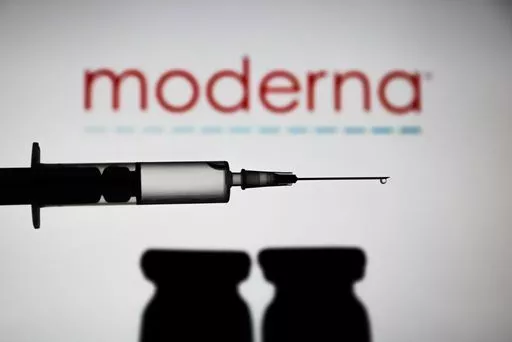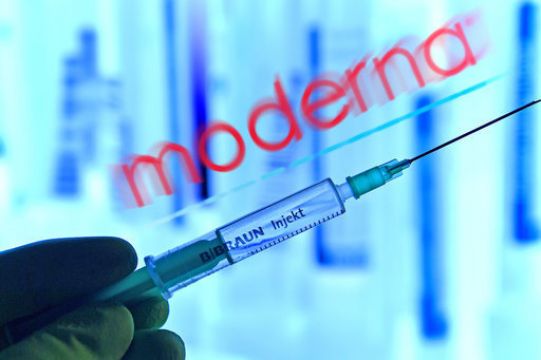Moderna has become the latest company to announce promising news in terms of a Covid-19 vaccine, after announcing a 94.5 per cent efficacy rate in clinical trials.
It follows Pfizer and BioNTech revealing their vaccine was 90 per cent effective based on clinical trials.
Both of these vaccines are based on mRNA technology, an emerging field in medicine.
What is mRNA technology?
Dr Piotr Kowalski is an Emerging Investigator for Health and a special lecturer in advanced therapies at University College Cork's School of Pharmacy, as well as the inventor of two patents on RNA delivery technologies.
Speaking to BreakingNews.ie about mRNA technology and why it is playing a crucial role in producing an effective coronavirus vaccine he explains: “Traditional vaccines utilise the inactivated virus or antigen protein itself, manufactured in a cell-based process that takes months to set up and run. With mRNA vaccines, the patient’s own body becomes the antigen factory.
“The speed with which mRNA vaccine candidates can be designed and produced is a key advantage of this new vaccine technology, for Moderna, it took a total of 25 days from sequence selection to vaccine manufacture.”

On the Pfizer and Moderna clinical trials, he says: “I think it's very encouraging, an advantage of mRNA technology is the ability to streamline the development process of the vaccines and to manufacture them quickly because they do not rely on a cell-based process to produce [the vaccines].
“Moderna took just 25 days, this is unprecedented in terms of vaccine development. The standard way of producing a vaccine, whether it's an attenuated virus [a weakened strain] or proteins, would usually take years. In terms of Covid, the companies who usually produce vaccines the traditional way announced they would be ready for clinical testing only in the second half of 2020, whereas with mRNA that moved much faster than some other technologies.”
The most optimistic predictions for the vaccine have speculated about initial deployment before Christmas and large-scale rollout by the summer.
Dr Kowalski says it is difficult to pinpoint a timeline due to “moving pieces” at play, but he is confident that the vaccine will be available next year.
Interim data
“This is interim data so before applying for emergency use authorisation, companies have to provide data with two months of safety foundation so this will take some time. I think Moderna and BioNTech will be applying for emergency use authorisation this year.
“There are also manufacturing challenges that are being addressed by companies so that will impact how quickly those vaccines are being developed. I'm confident that there will definitely be a vaccine available next year.”
While there is a natural tendency for people to pin their hopes on the more promising trials - Moderna at the moment - Dr Kowalski says it's important that as many companies as possible continue to make progress with their vaccines.
“I think the most important piece of data we should focus on is the efficacy of the vaccine. Both vaccines [Pfizer and Moderna] show really encouraging data. In reality, this is a pandemic that affects the whole world and there's not going to be enough vaccines from one single company to cover everyone.
“I can imagine both vaccines will be used in different regions of the world, so we should be happy that both vaccines will be available so quickly and that they seem to be very effective. I don't think we'll have a problem of choosing one vaccine or another, we'll be taking the vaccine that is efficient and available in that region.”
No corners are being cut in terms of evaluation, it's just that mRNA allows for vaccines to be established faster.
While he stresses the two vaccines, along with the AstraZeneca and Johnson & Johnson trials, are important, the fact Moderna's vaccine can be stored at -20C compared to Pfizer's at -70C is a big positive.
“The advantage of a vaccine that can be stored at lower temperatures lessens the logistical challenges. Both companies will be getting ready for deployment of the vaccine.
“It's good news that Moderna figured out a way to lower this logistical challenge and store the vaccine in more 'user-friendly' conditions. That will help with deploying it in areas that don't have access to more sophisticated equipment.
“As we go forward there will be more vaccines that can be stored in different conditions but the progress already is great.
“The more vaccines we have, I can't stress this enough, the more efficient and safe vaccines we have the better for everyone. For more established technologies it may take longer to get there, but they will and these will be easier to deploy in areas where there is little access to cold storage.
“The response of the scientific community to this pandemic has been excellent. This shows we should not be afraid to invest in new technologies because you never know when they can come to the rescue. They can offer something that more conventional systems cannot always offer.”
Trials
While some have questioned whether the vaccine development is being rushed, Dr Kowalski says the speed at which mRNA technology allows trials to develop and the large scale of the trials (Moderna's trial involved 30,000 subjects) means “no corners are being cut”.
“No corners are being cut in terms of evaluation, it's just that mRNA allows for vaccines to be established faster than the more traditional alternatives.
“For situations like Covid this will be a no-brainer. I wouldn't say that mRNA will suddenly replace all technologies but it is producing promising results.”







